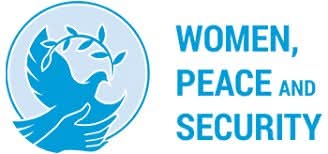Natasha’s Suspension Highlights Struggles Women Face in Nigeria – Activist

The six-month suspension of Senator Natasha Akpoti-Uduaghan from the Nigerian Senate has been described as a harsh reminder of the challenges women encounter in the country, particularly in leadership and the pursuit of justice.
Critics argue that her suspension was rushed and lacked a transparent investigation.
Senator Natasha had earlier petitioned the Senate Committee on Ethics, Privileges, and Public Petitions, alleging sexual harassment by Senate President Godswill Akpabio.
Reacting to the development, Comrade Jacob Pwakim Choji, the former Assistant Secretary of the Women Peace and Security Network in Plateau State, said, “The case of Senator Natasha and the Senate President is a stark reminder of the struggles women face in Nigeria, whether in breaking into male-dominated leadership spaces, seeking justice for abuses, or advocating for equity and career growth.”
He questioned the urgency behind her suspension, stating that the manner in which the Senate Committee handled the issue raises serious concerns.
“This is not just about one senator; it is about the systemic barriers that continue to silence women in leadership and punish those who seek justice,” he noted.
Choji also pointed out that the alleged breach of Senate rules should not be treated more seriously than accusations of sexual harassment involving the third-highest-ranking official in Nigeria.
“If anything, a transparent investigation into the harassment claims should have taken priority,” he added.
The activist further questioned the secrecy surrounding the decision, asking:
“Why was Senator Natasha suspended so hastily without a transparent investigation? What was the urgency? What is being hidden?”
He criticized the Senate President’s swift declaration that Natasha “ceases to be a senator,” describing it as an abuse of power and a threat to democracy.
“If our laws allow such unchecked authority, then urgent constitutional reforms are needed to prevent legislative overreach and protect against the weaponization of power,” he stated.
Choji also called out feminist groups, civil society organizations, and democracy advocates, urging them to take a stand against what he described as autocracy and oppression.
“Where are the women-led organizations, gender activists, the so-called HeForShe movement, and legal practitioners? Is activism now only convenient when it doesn’t involve a powerful figure?”
He stressed that the issue goes beyond gender, saying it is a test of democracy and accountability.
“This is not just about Senator Natasha or the Nigerian Senate; it is about the fundamental rights and dignity of every Nigerian—both men and women.”





